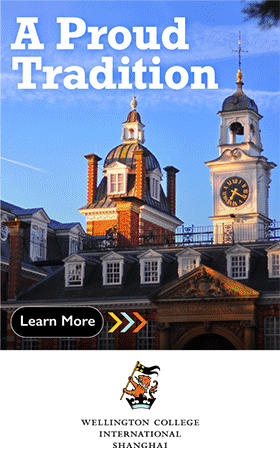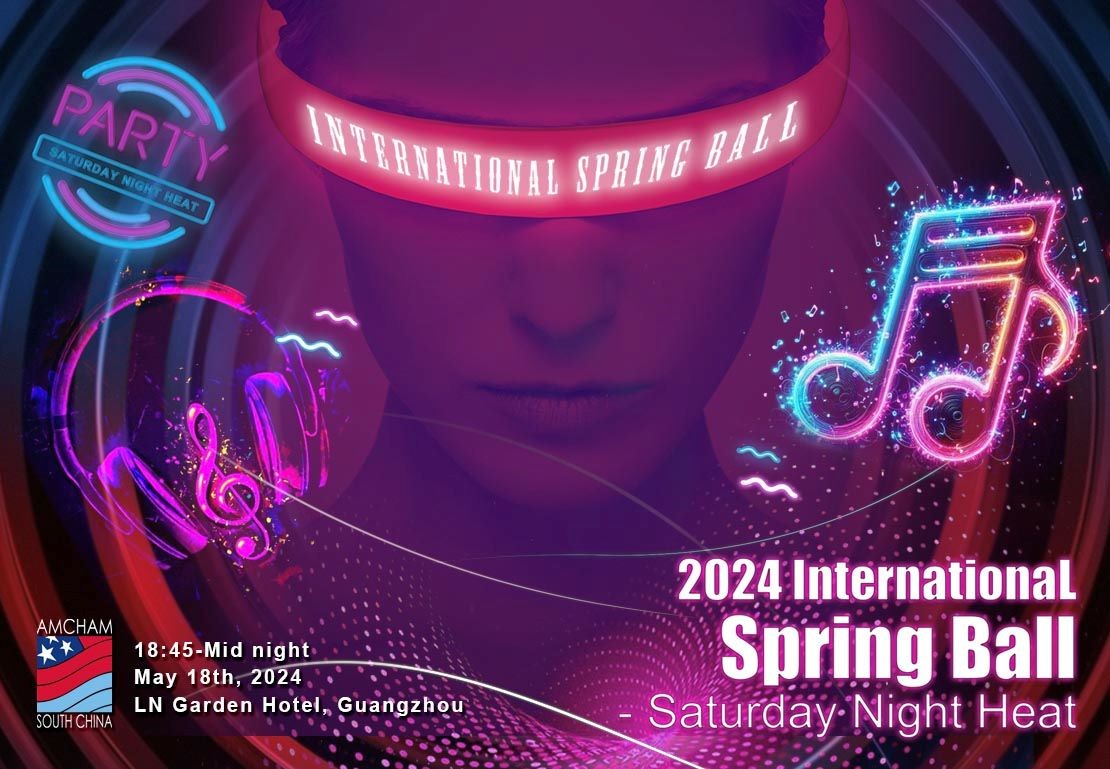Why Do the Rich Want Their Children to Study Much-maligned Liberal Arts?
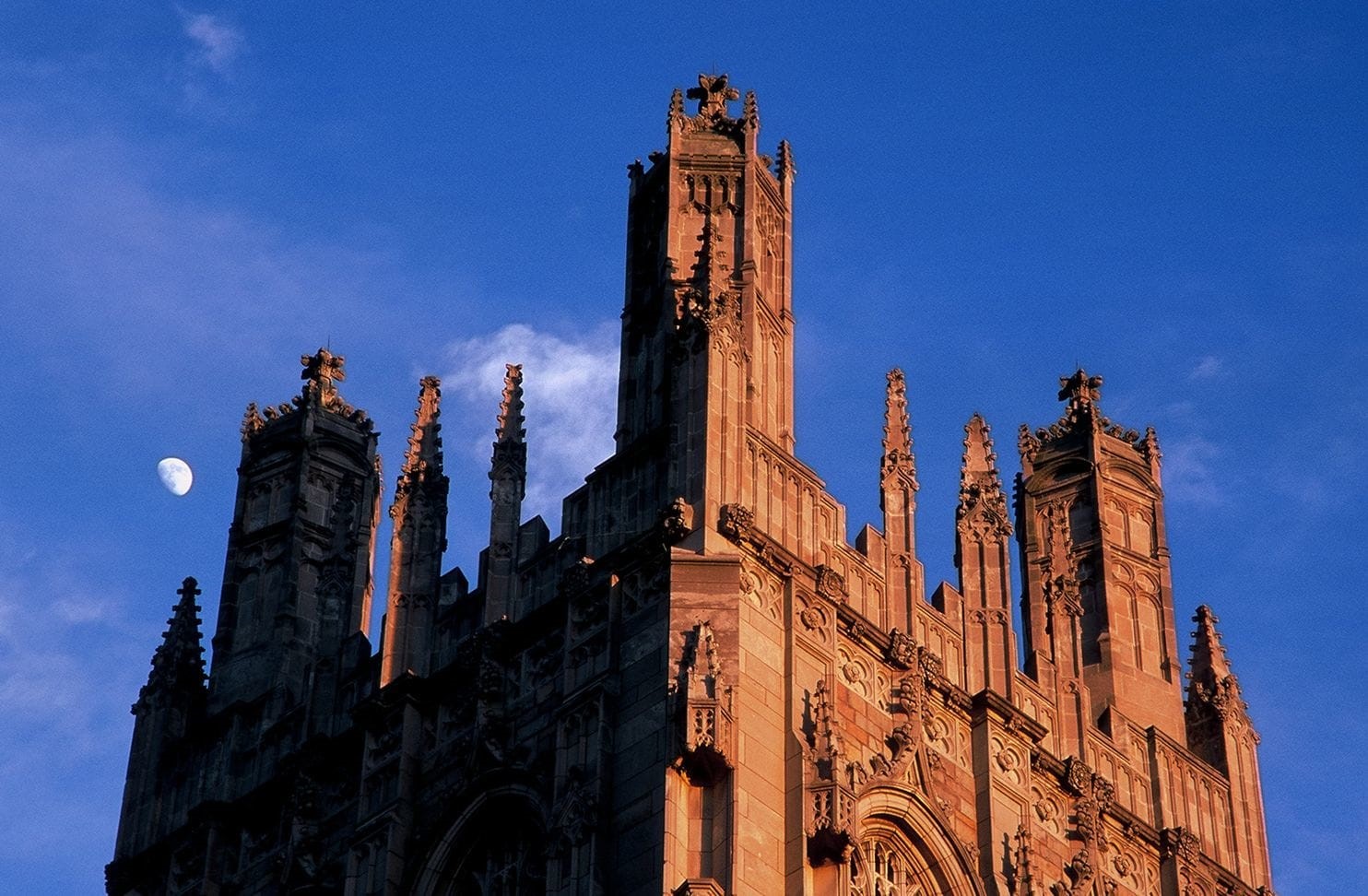
The liberal arts are under attack. So why do the rich want their children to study them?
By Valerie Strauss
A new analysis by two economists takes issue with those who argue that liberal arts education is not worth the investment.
Catharine B. Hill and Elizabeth Davidson, of the Andrew W. Mellon Foundation, looked at how much graduates with a liberal arts education can earn. They found that while liberal arts majors may not earn as much engineers, they do well, showing that critics are incorrect about the worth of the degree.
That brings us to the post below, written by Donald Lazere, professor emeritus of English at California Polytechnic State University at San Luis Obispo, who asks and answers the following question: If a liberal arts education isn’t worth the money, as critics contend, why do the United States’ wealthy families want their children to get one?
He is co-author, with Anne-Marie Womack, of the third edition of “Reading and Writing for Civic Literacy: The Critical Citizen’s Guide to Argumentative Rhetoric,” forthcoming from Routledge. He is also the author of “Political Literacy in Composition and Rhetoric,” “The Unique Creation of Albert Camus,” and the editor of “American Media and Mass Culture: Left Perspectives.”
By Donald Lazere
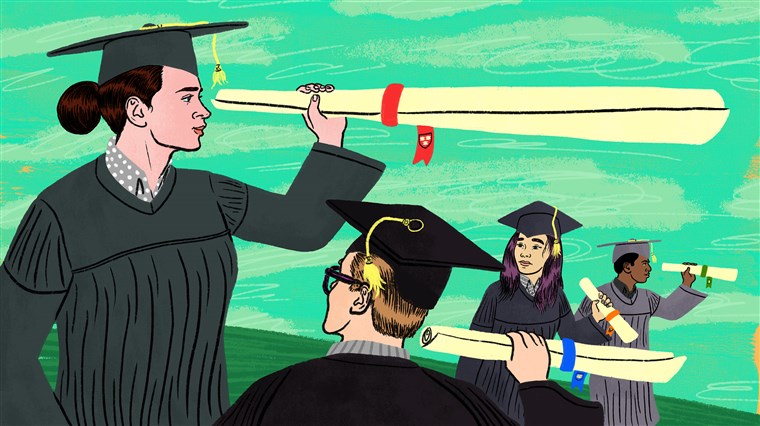
The recent scandal over wealthy parents bribing their children’s way into Ivy League-level universities intensifies a long-standing anomaly: The curriculum at the United States’ most selective and expensive private undergraduate colleges has always centrally been the liberal arts, yet little public attention has been paid to what in that curriculum has made it so desirable by the children of the wealthy or those aspiring to wealth.
Those who ridicule the liberal arts love to focus on bizarrely titled or narrowly specialized college courses in literary or philosophical study, or doctrinaire-sounding subjects in identity politics.
The accuracy of such accounts is often disputable, but to whatever extent they may be accurate, I agree that such courses often abandon the most important mission of liberal education, which is to embody what sociologist Alvin Gouldner termed a “culture of critical discourse” that is the common language of bachelor of arts students, faculty, and graduates, whatever their class, ethnic, or gender identities may be.
Those who ridicule the liberal arts love to focus on bizarrely titled or narrowly specialized college courses in literary or philosophical study, or doctrinaire-sounding subjects in identity politics.
The accuracy of such accounts is often disputable, but to whatever extent they may be accurate, I agree that such courses often abandon the most important mission of liberal education, which is to embody what sociologist Alvin Gouldner termed a “culture of critical discourse” that is the common language of bachelor of arts students, faculty, and graduates, whatever their class, ethnic, or gender identities may be.
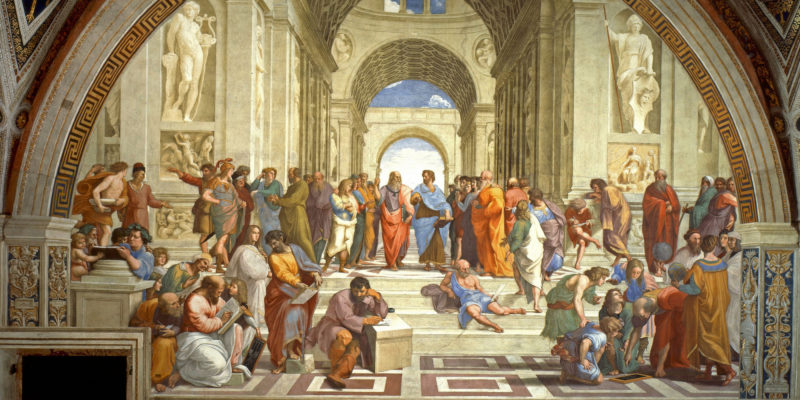
What constitutes that culture? One root of it was in the philosophy of Socrates, who, as recounted in Plato’s “The Apology,” urged his students to question both established authority and their own beliefs, to “know thyself,” because “the unexamined life is not worth living.” One of many contemporary reaffirmations of Socratic questioning is philosopher Martha Nussbaum’s book “Not for Profit: Why Society Needs the Humanities”:
If a nation wants to promote . . . democracy dedicated to “life, liberty and the pursuit of happiness” to each and every person, what abilities will it need to produce in its citizens? At least the following seem crucial: The ability to think well about political issues affecting the nation, to examine, reflect, argue, and debate, deferring to neither tradition nor authority. Such formulations might seem sensible enough, yet they lead into vexing dilemmas.
First, why do they tend to emanate from “elite” colleges such as the University of Chicago or Ivy League schools, where Nussbaum has taught. And why do we presume that they have value for the elite of students there, but not for students in every college in the country, as well as in every K-12 school?
In fact, such a policy was advocated in 2010 (though still not widely implemented) by the much-maligned Common Core State Standards Initiative commissioned by the National Governors Association, advocating nationwide instruction in K-12 “to demonstrate the cogent reasoning and use of evidence that is essential to responsible citizenship in a democratic republic.”
If a nation wants to promote . . . democracy dedicated to “life, liberty and the pursuit of happiness” to each and every person, what abilities will it need to produce in its citizens? At least the following seem crucial: The ability to think well about political issues affecting the nation, to examine, reflect, argue, and debate, deferring to neither tradition nor authority. Such formulations might seem sensible enough, yet they lead into vexing dilemmas.
First, why do they tend to emanate from “elite” colleges such as the University of Chicago or Ivy League schools, where Nussbaum has taught. And why do we presume that they have value for the elite of students there, but not for students in every college in the country, as well as in every K-12 school?
In fact, such a policy was advocated in 2010 (though still not widely implemented) by the much-maligned Common Core State Standards Initiative commissioned by the National Governors Association, advocating nationwide instruction in K-12 “to demonstrate the cogent reasoning and use of evidence that is essential to responsible citizenship in a democratic republic.”
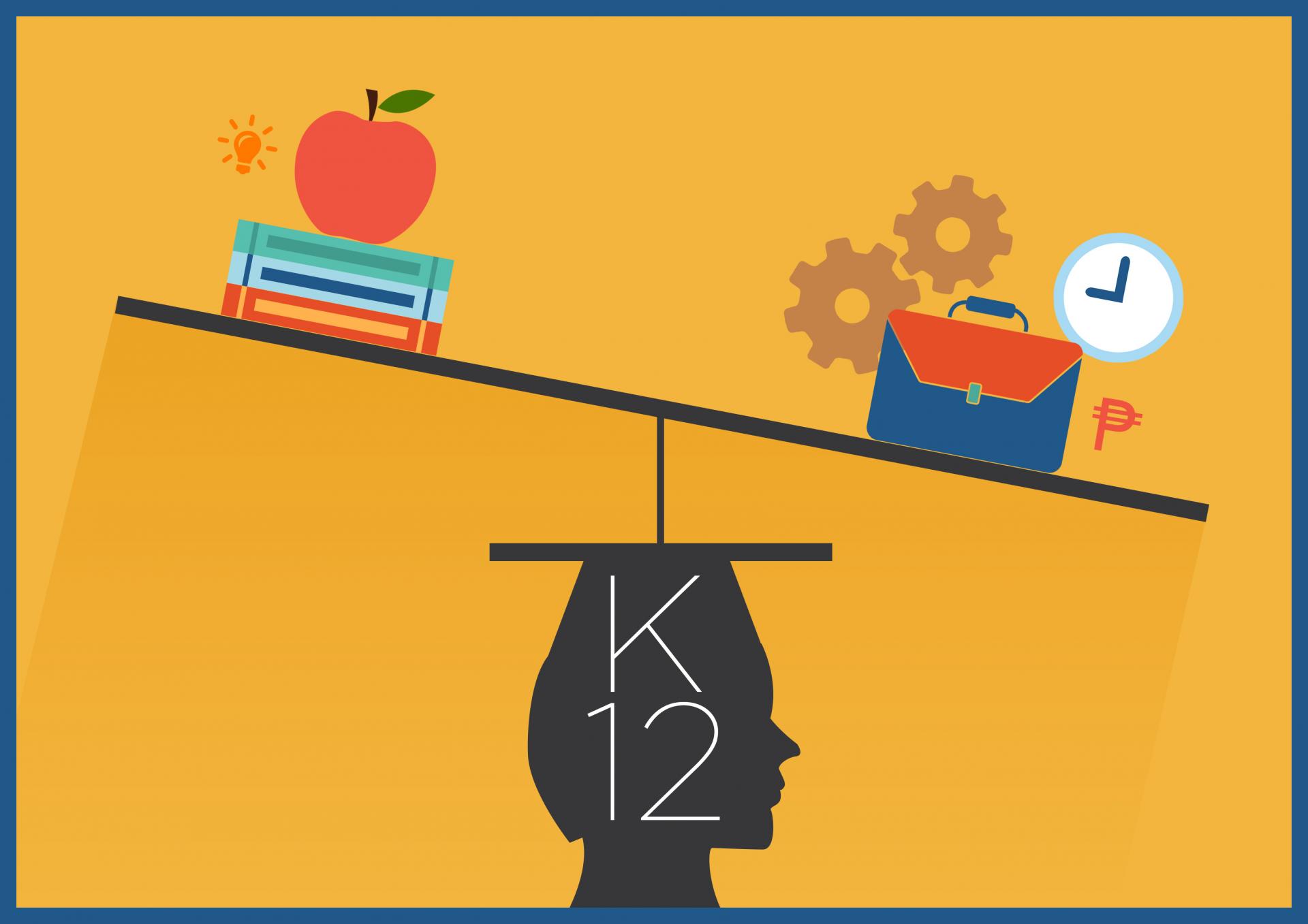
Perhaps the wisest view on these issues ever articulated in the United States was that of Thomas Jefferson in an 1813 letter to John Adams titled “The Natural Aristocrat,” in which Jefferson described a model he had devised (but that, alas, was never implemented nationally) for making free, quality education through the university level accessible to all social classes, “at the public expense” — i.e., tax-funded.
“Worth and genius would thus have been sought out from every condition of life, and completely prepared by education for defeating the competition of wealth and birth for public trusts.”
Moreover, this model of universal access to education would have “raised the mass of the people to the high ground of moral respectability necessary to their own safety, and to orderly government, and would have completed the great object of qualifying them to elect the veritable aristoi [or ‘meritocracy’], for the trusts of government, to the exclusion of the pseudalists [those born to wealth and power].”
As for the content of this education, Jefferson included in a letter advising his nephew Peter Carr on his studies: “Question with boldness even the existence of a God; because if there is one, He must more approve of the homage of reason than that of blindfolded fear.”
“Worth and genius would thus have been sought out from every condition of life, and completely prepared by education for defeating the competition of wealth and birth for public trusts.”
Moreover, this model of universal access to education would have “raised the mass of the people to the high ground of moral respectability necessary to their own safety, and to orderly government, and would have completed the great object of qualifying them to elect the veritable aristoi [or ‘meritocracy’], for the trusts of government, to the exclusion of the pseudalists [those born to wealth and power].”
As for the content of this education, Jefferson included in a letter advising his nephew Peter Carr on his studies: “Question with boldness even the existence of a God; because if there is one, He must more approve of the homage of reason than that of blindfolded fear.”
So it becomes clear that much of what conservatives revile as “liberal bias” or “moral relativism” in today’s education is precisely the tradition of skeptical, or critical, discourse from Plato to Jefferson and other American founders in the 18th Century Age of Reason. Both educated liberals and conservatives should cherish the liberal arts-educated “cultural elite” as our society’s Socratic gadfly — but with entry to it extended to those of “worth and genius … from every condition of life.”
The knottiest paradox of the identification of liberal education with the rich might be that many “classic” writings in the liberal arts curriculum, especially in the humanities, have virulently condemned wealth and the wealthy, as Socrates did in teaching his students in Athens to embrace a life of poverty in quest of wisdom and virtue — a doctrine so subversive that it led to his arrest and execution.
The knottiest paradox of the identification of liberal education with the rich might be that many “classic” writings in the liberal arts curriculum, especially in the humanities, have virulently condemned wealth and the wealthy, as Socrates did in teaching his students in Athens to embrace a life of poverty in quest of wisdom and virtue — a doctrine so subversive that it led to his arrest and execution.
Socrates foreshadowed the New Testament, whose dominant theme is again condemnation of wealth — though centuries of propagandists for the wealthy have rationalized that the Gospel does not say it is all that hard for a rich man to enter the Kingdom of Heaven.
Among the subsequent classics written by the much-reviled dead white males taught in “Western Civilization” courses — whatever their justly criticized gender and racial biases and inconsistencies were — the vast majority fiercely opposed wealth and the wealthy, especially following the rise of industrial capitalism, with its “dark satanic mills” (William Blake).

In mid-19th century America, Ralph Waldo Emerson’s “The American Scholar” sounded like his European contemporary Karl Marx: “Young men of the fairest promise … are hindered from action by the disgust which the principles on which business is managed inspire, and turn drudges, or die of disgust—some of them suicides.”
Emerson’s disciple Henry David Thoreau (like Emerson, a Harvard graduate) concurred in his essay “Life Without Principle:” “The ways by which you may get money almost without exception lead downward.” And, “There is nothing, not even crime, that is more opposed to poetry, to philosophy, ay, to life itself, than this incessant business.”
Mark Twain, who coined the term “the Gilded Age” in the late 19th Century, wrote then,
It was impossible to save the great Republic. She was rotten to the heart. . . The government was irrevocably in the hands of the prodigiously rich and their hangers on; the suffrage was become a mere machine, which they used as they chose. There was no principle but commercialism, no patriotism but of the pocket.
What, then, can we make of the anomaly that the elite liberals arts education so coveted today by the rich or those seeking to get rich consists largely of diatribes against the rich?
Possible answers are deeply tangled up in the history of education, such as the concept of a “gentleman’s education” for those so secure in their social rank and beyond needing to work for a living that they can disinterestedly consider and write criticisms of their own class — in some cases, going so far as to act against it politically, in the mode of Theodore and Franklin D. Roosevelt.
Another, more cynical theory is that, despite all the desperate effort expended on being admitted to, and graduating from, liberal arts colleges, maybe the actual subject matter and academic rigor of a liberal arts curriculum are basically a facade for the primary worth of an Ivy-level diploma, which is the social contacts made while attaining it and the prestige associated with it, like a designer label or secret handshake.
Then there are the stereotypical rich students, often legacy admissions, who seek only the “Gentleman’s C,” putting in minimal academic work while mainly partying and networking socially.
Even so, it remains a mystery why four or more years of rigorous immersion in “the culture of critical discourse” remains the price of the ticket to the financial and social elite.
Years ago I taught a GE&B-required introduction to literature course at California Polytechnic State University in San Luis Obispo, in the midst of prosperous farm country. One student, whose family owned a large ranch, kept ragging me: Why should he have to waste time on general education instead of taking just Ag Management courses?
I tried repeatedly, and I hope cordially, to review justifications for liberal education and to explain why it is favored by society’s movers and shakers, including Jefferson’s notion of moral responsibility and Nussbaum’s “ability to think well about political issues affecting the nation, to examine, reflect, argue, and debate.”
After one of my efforts, he burst out, “Are you telling us that we should study this stuff just so we can talk about it on the golf course?” Maybe he had a point — though I can’t envision a discussion of Socrates or Thoreau at any country club I know of.
Other possible explanations or resolutions for these paradoxes are too complex even to speculate about here. Suffice it to say that we will have far from the most desirable system for education that enables students to become active critics of the politico-economic status quo, so long as access to it is limited to students who are, or are likely to become, the prime beneficiaries of it.
More pertinent to the practical consequences of these paradoxes is this: It is a national disgrace today that instead of making liberal education in K-12 and college more accessible to those from “every condition of life,” access is being fatally curtailed through legislative budget cuts, skyrocketing tuition and student loan debt, and political anti-intellectualism.

Little defense of liberal education for an enlightened citizenry has been heard from any prominent political leader — even Democrats such as Barack Obama, whose education, two books written before his presidency and speeches were more steeped in liberal arts than any president in memory, but who as president caved in to lobbies for STEM education and school privatizers.
I see several sources for the national abandonment of liberal education. First, many conservatives, especially among orthodox religious believers and those who have not attended college, resist any notion of education “deferring to neither tradition nor authority” — the traditional authority of the family, church and nationalism.
Second, the large lobby for privatization of K-12 and for increasing corporate control over higher education seeks both to turn education into a profit-making enterprise and to replace liberal-leaning teachers and students with corporate-compliant ones. The ferocious tax-cutting and privatizing lobbyist Grover Norquist has admitted that his political goal is to “crush the structures of the left” in education and other public employment.
Moreover, among the wealthy who have gained the upper hand in virtually every branch and level of American society and government, many are quite aware of the value of liberal education, so want to restrict it to their children precisely, in Jefferson’s terms, to prevent the less privileged classes from “defeating the competition of wealth and birth for public trusts.”
The pretexts of these conservative forces for heartless budget cuts in public education are budgetary austerity (not a problem when it comes to military spending,astronomical personal fortunes, corporate profits, and campaign contributions) or the need to stamp out political correctness in liberal teachers and students. These conservatives would throw out the precious baby of universal liberal education with the bathwater of perceived liberal bias.
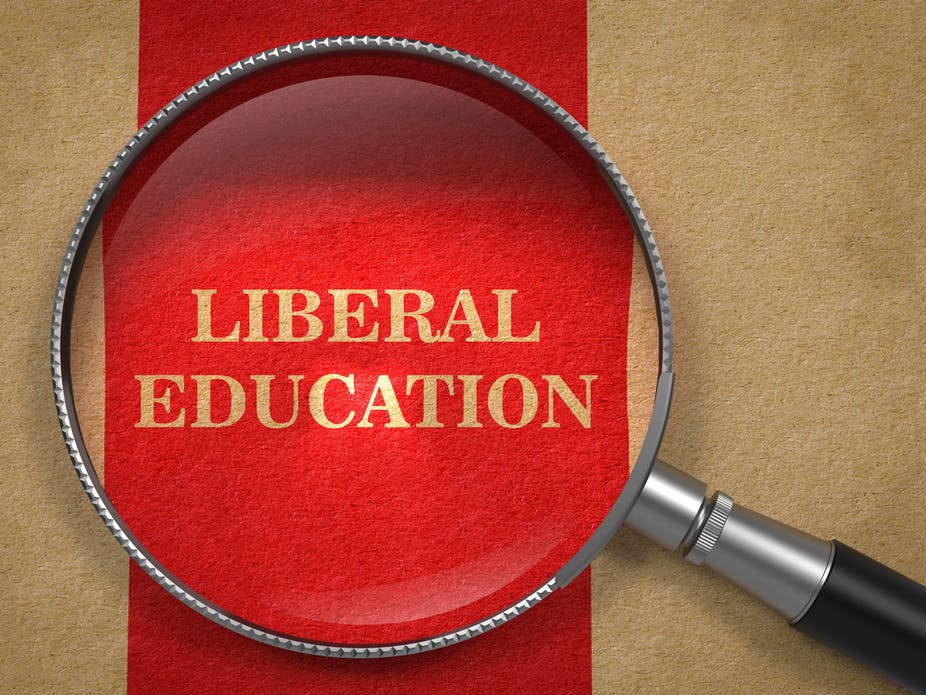 Finally, it is not just liberal education for anyone except the rich that is endangered. Many graduates of and faculties in the most selective liberal arts colleges have long been distinguished not for wealth but their preeminence as scholars or practitioners in fields like the pure and social sciences, the arts and humanities, as authorities on public affairs — “public intellectuals” and “talking heads” — or as activists for social justice, going back to 19th Century abolitionism, feminism and anti-imperialism.
Finally, it is not just liberal education for anyone except the rich that is endangered. Many graduates of and faculties in the most selective liberal arts colleges have long been distinguished not for wealth but their preeminence as scholars or practitioners in fields like the pure and social sciences, the arts and humanities, as authorities on public affairs — “public intellectuals” and “talking heads” — or as activists for social justice, going back to 19th Century abolitionism, feminism and anti-imperialism.This entire source of American brainpower needs to be defended against the resurgence of what historian Richard Hofstadter termed “anti-intellectualism in American life.”
Scan the following QR code to follow our 优智家UrbanFamily:

[Original Article from The Washington Post]
[Cover picture via The Washington Post and other pictures via Google]
Get the weekly newsletter!
Sign up to get the entertainment, lifestyle and event news from Urban Family every week!Classified Posts
News


